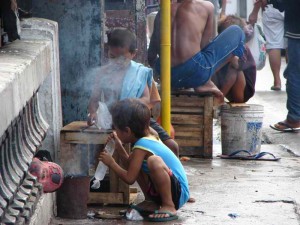
MANILA — The government is giving more boost to its social protection programs for the poor and marginalized sectors of society in Oriental Mindoro by expanding the delivery of basic social and health services in the province.
To carry this out, three major government agencies signed on Friday a Memorandum of Agreement on Social Protection Support Initiative (SPSI) with the provincial and municipal governments of Oriental Mindoro. The SPSI signing ceremony was held at the Aloha Hotel in Malate, Manila.
The three government agencies are the Department of Social Welfare and Development (DSWD), Department of Health (DOH), together with its Philippine Health Insurance Corporation (PhilHealth), and Department of Science and Technology (DOST).
According to DSWD Secretary Corazon J. Soliman, the partnership targets to benefit more poor families as part of the expansion of the social protection services with the cooperation and participation of the provincial and municipal governments of Oriental Mindoro.
“Under this partnership, we will ensure that the three departments — DOH with its PhilHealth, DSWD and DOST — are responding both to health issues and poverty of the poor sectors of society in the said pilot area,” Soliman said.
She explained that their ultimate objective with SPSI is to lower the neo natal mortality rate by bringing in quality health care and welfare services and therefore help in improving the economic status and well-being of the Filipinos, not only in Oriental Mindoro, but to other parts of the country.
She cited that since DOH and DSWD are devolved agencies, they will be closely working with the participation of the local government units (LGUs) with their counterpart local social welfare and development officers and workers and health workers to make the program effective.
She said that it is important that the principle of convergence strategies is undertaken to ensure that reforms in terms of poverty alleviation and social protection are achieved.
“The SPSI convergence project is initiated by the three agencies because we believe that this will lead also to focus on targeting cost effectiveness, maximize use of resources and greater project impact on the lives of partner beneficiaries,” the DSWC chief said.
She also said that the project aims to inform more poor families or individuals about the basic health care services available to them and where and how they can avail of it, specially pregnant mothers, to avoid or reduce incidence of maternal and child deaths.
It is also giving priority to the Pantawid Pamilyang Pilipino Program (4Ps) beneficiaries, families listed under the National Household Targetting System for Poverty Reduction (NHTS-PR), and other poor but not included in the list, according to PhilHealth President and Chief Executive Officer Alexander Padilla.
Padilla said that the partnership aims to achieve improved and coordinated delivery of social protection services by creating awareness among the people to pro-actively register in the health care system and pay their premium or refer to appropriate sponsorship and measure the performance of universal health insurance coverage.
According to DOH Secretary Enrique T. Ona, through the advanced information and communications system and technology under the participation of DOST, the SPSI will ensure that government’s social service delivery can be implemented meaningfully
“This will comply with the government’s agenda and fulfill its promise of improvement of the quality of life of the marginalized groups while linking them in the inclusive growth where no one is left behind and attain the ultimate goal of poverty alleviation,” Ona said.
Under SPSI, the implementation of three sub-projects such as Sustaining Interventions in Poverty Alleviation and Governance (SIPAG) implemented by DSWD, the Watching Over Mothers and Babies (WOMB) implemented by DOH, and the Sigurado at Garantisadong Insurance Pangkalusugan (SAGIP) implemented by PhilHealth are converged together by utilizing ICT of DOST to enhance efficiency of the delivery process.
Among the initial pilot sites when it was launched in May 2011 were the municipalities of Bansud, Pola, Mansalay, Naujan, Bongabong and Bulalacao in Oriental Mindoro.
With its expansion to boost its effectiveness, it will be now implemented in additional eight municipalities and one city to saturate the whole province.
The eight municipalities are Baco, Gloria, Pinamalayan, Puerto Galera, Roxas, San Teodoro, Socorro, Victoria, plus the City of Calapan.
The local chief executives of Calapan City and the towns of Oriental Mindoro together with Gov. Alfonso V. Umali Jr. have expressed their full support to the SPSI convergence project.
“For the success of the SPSI implementation, it is very necessary that there is a wide support and we are committing our support on this,” Governor Umali shared.
“We are fully supporting the SPSI because good projects that benefit our constituents deserve support,” said Mayors Jackson C. Dy and Rolando F. Arreola of Roxas and Socorro, respectively.